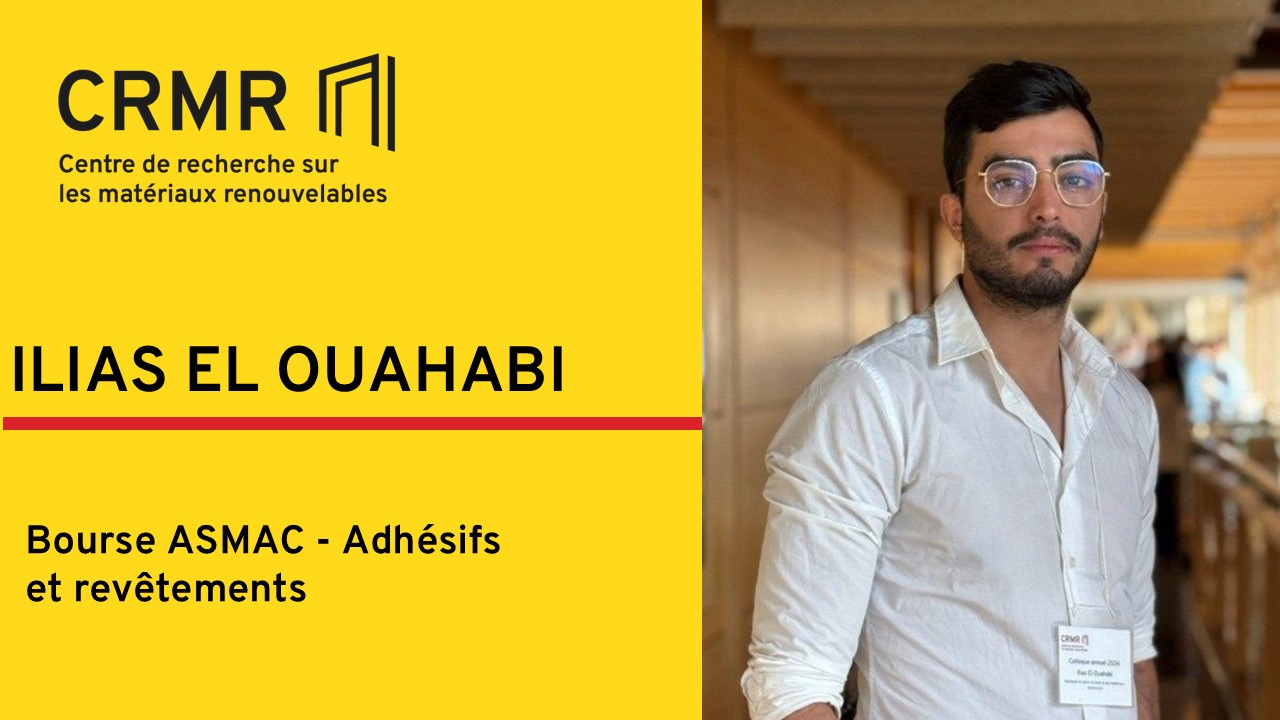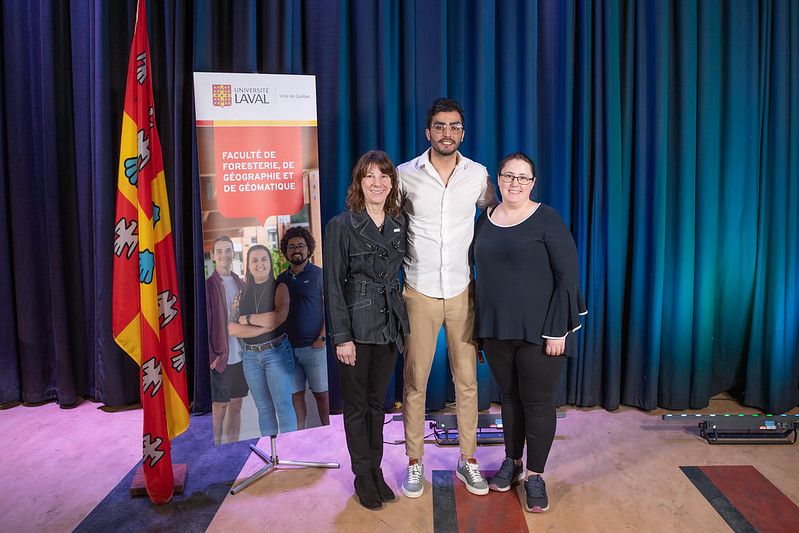Congratulations to Ilias El Ouahabi, recipient of the ASMAC Adhesives and Coatings Scholarship worth $3,000!
PhD candidate in Wood and Bio-Based Materials Engineering under the supervision of Véronic Landry, Ilias is dedicated to the development of innovative, formaldehyde-free adhesives made from saccharides. This project promises to revolutionize the wood industry by offering eco-friendly and sustainable solutions.
The purpose of this scholarship is to support students whose projects contribute to advancing research on bio-based and eco-friendly adhesives and coatings, with the goal of promoting sustainable solutions for the wood sector.
Bravo to Ilias for this impressive achievement and for his commitment to sustainable innovation!
For more information about this scholarship, you can check the ASMAC Adhesives and Coatings Scholarship page.

Project Summary:
The market challenge addressed by my project is at the heart of current environmental and industrial concerns. The wood-based composite panel industry still relies largely on petroleum-derived synthetic adhesives, which release volatile organic compounds (VOCs), including formaldehyde—a chemical known for its harmful effects on human health and the environment. With increasing consumer awareness and increasingly stringent environmental regulations, the demand for eco-friendly, formaldehyde-free adhesives is growing. However, while bio-based alternatives are emerging, they often struggle to meet performance requirements, particularly in terms of adhesion, mechanical properties, and water resistance, which are essential for industrial applications.
My project aims to bridge this critical gap by developing innovative bio-based adhesives using chemically modified polysaccharides to achieve performance comparable to synthetic adhesives while meeting ecological sustainability criteria. This solution addresses two major market challenges: reducing environmental impact by limiting the emission of toxic substances and ensuring technical performance that meets the needs of composite panel manufacturers. The adoption of these adhesives could represent a major breakthrough, not only for public health but also for the strategic positioning of companies adopting these technologies in an increasingly sustainability-driven competitive landscape.
In summary, the main challenge is to overcome the current limitations of bio-based adhesives to offer a competitive and industrially viable solution. The success of this innovation could transform the adhesive market for wood panels, enabling manufacturers to meet societal and regulatory expectations while maintaining their economic competitiveness.

Photo of Ilias with Nancy Gélinas, Dean of the Faculty of Forestry, Geography, and Geomatics (FFGG), and Stéphanie, Chief Scientist at EMCO-Inortech, during the 2025 FFGG Scholarship and Awards Ceremony, held on Wednesday, March 26.

